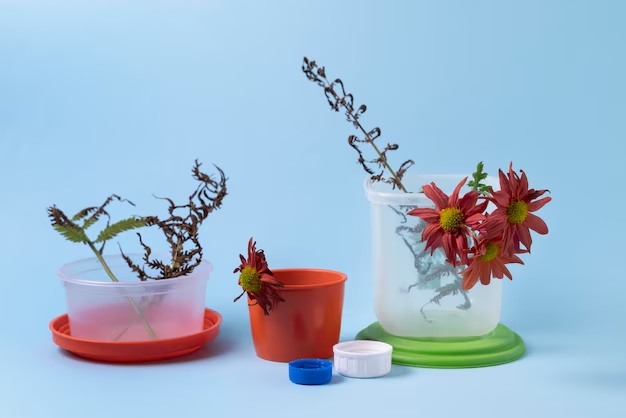In a recent development, the Bombay High Court raised an important question about plastic flowers and their exclusion from the list of banned single-use plastics in India. The court was hearing a petition filed by the Growers' Flower Council of India (GFCI), which had urged the government to include plastic flowers in the list of banned items.
Background
India has been actively working to reduce plastic pollution by banning single-use plastics. This includes items like plastic straws, bags, and cutlery, which are difficult to recycle and contribute to environmental harm. However, despite the growing awareness around the dangers of plastic waste, plastic flowers have not been included in the list of banned items.
The Bombay High Court questioned the exclusion of plastic flowers and pointed out that these items, like other single-use plastics, are non-biodegradable and do not decompose. The court asked the Centre whether plastic flowers are recyclable or biodegradable, pointing out that plastic waste has been banned primarily due to these issues.
The Problem with Plastic Flowers
Plastic flowers are widely used in decorations for various occasions like weddings, festivals, and events. Despite their aesthetic appeal and long-lasting nature, plastic flowers have a significant environmental impact. They cannot be recycled efficiently, and when discarded, they remain in the environment for hundreds of years, contributing to the growing plastic waste crisis.
Most plastic flowers end up in landfills or water bodies, where they contribute to pollution. Unlike organic flowers, which biodegrade naturally, plastic flowers persist in the environment, harming wildlife and polluting natural habitats.
The Government’s Ban on Single-Use Plastics
India's ban on single-use plastics was aimed at addressing plastic pollution and protecting the environment. The ban has targeted items that are used once and then thrown away, as these materials are the main culprits of plastic waste accumulation. While some commonly used items like plastic bags, plates, and cutlery have been banned, plastic flowers have been overlooked.
The exclusion of plastic flowers from the ban has raised questions about the consistency and effectiveness of the government's efforts to tackle plastic waste. The Bombay High Court's intervention highlights the need for a broader, more inclusive policy that addresses all forms of plastic waste, not just the most commonly used items.
Why Plastic Flowers Should Be Included in the Ban
Plastic flowers should be included in the plastic ban for several reasons:
- Non-Biodegradability: Plastic flowers do not decompose in nature and contribute to long-term pollution.
- Difficult to Recycle: Like other plastic products, plastic flowers are hard to recycle, making them a waste management challenge.
- Availability of Alternatives: There are eco-friendly alternatives to plastic flowers, such as fabric flowers or biodegradable floral arrangements made from natural materials, which can reduce the reliance on harmful plastic items.
A Call to Action
The Bombay High Court's inquiry into the issue serves as an important reminder that plastic waste is a multifaceted problem, and all types of plastic waste, including plastic flowers, must be addressed. Consumers, businesses, and the government need to work together to promote the use of sustainable alternatives and push for a more comprehensive ban on harmful plastics.
Conclusion
As plastic pollution continues to pose a significant environmental challenge, it's essential that we consider all forms of plastic waste, including seemingly harmless items like plastic flowers. By including them in the ban on single-use plastics, India can take a stronger stance in its efforts to protect the environment and reduce plastic waste. The time to act is now—by switching to eco-friendly alternatives, we can make a meaningful impact in the fight against plastic pollution.











